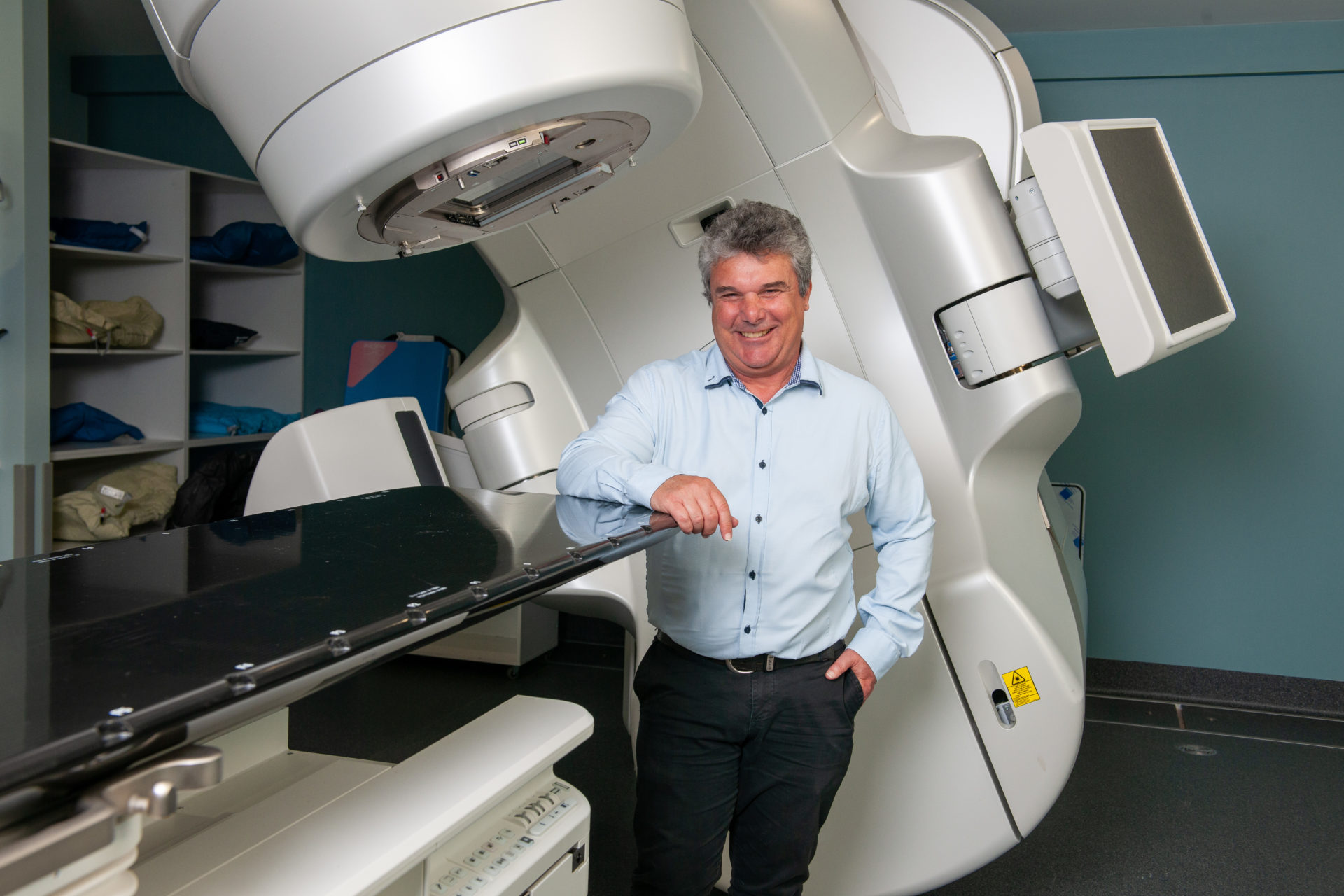
Participating in a clinical trial, like the TROG Cancer Research RAVES trial, often means more than just accessing new technology that could increase treatment and quality of life outcomes. For people like James, it’s about using an understandably challenging situation to help others.
“The way it was put to me is that I could potentially help another person in a similar situation by participating. And that is why I did it. If you can help your fellow human beings, why don’t you?” James said.
Having not long turned 50, James thought it a good idea to see his GP for a general check-up. A round of blood tests revealed an elevated prostate-specific antigen (PSA) level. This prompted his doctor to send James for another test.
“I had a second blood test and I thought that if there was a problem, they would follow up with me,” he recalls. “Nine months later when I was at the GP, I happened to mention the follow-up test results but there was nothing in my file.”
With no records to be found, another follow-up test was taken which confirmed James’ PSA levels remained elevated and treatment was required.
A biopsy conducted by his Urologist detected cancer in nine out of 12 needle biopsies of James’ prostate. With his father having previously been treated for prostate cancer, James felt confident he knew what he was facing. Unfortunately, that wasn’t so.
“Dad’s prostate cancer was treated with brachytherapy and seeded gold, so I asked if that treatment option was available. My Urologist said ‘No’.
“’So, I need radiation therapy or surgery?’ He said yes. The advice he gave was if you have surgery you can clean up [any remaining tumours] with radiation. But by doing it the other way around and starting radiation first, it is very hard to clean up with surgery.”
The need for a prostatectomy was confronting for James, so his doctor put him in touch with the Hunter Prostate Cancer Alliance (HPCA). The HPCA is a not-for-profit organisation dedicated to raising awareness of prostate cancer. It also provides a free counselling service to affected men and their families.
“HPCA chatted me through the process. They put me onto a naturopath and holistic health professional to put my life back into balance and to promote a better mindset before surgery and treatment.”
The surgery went ahead but the news from the Urologist during the follow-up consultation was not as positive as they had hoped. Cancer had progressed through the prostate wall. It was at this time the Urologist told James he had discussed his case with TROG Cancer Research and that he was an ideal candidate to participate in the RAVES trial.
The Radiotherapy – Adjuvant Versus Early Salvage (RAVES) clinical trial focused on two treatment methods for men who have needed a radical prostatectomy following a diagnosis of prostate cancer.
Dr Anne Capp, a Senior Staff Specialist in Radiation Oncology at Calvary Mater Newcastle, and Coordinator of RAVES, explains:
“The first option is to give radiation therapy immediately after surgery. Known as adjuvant radiation therapy, research had already shown that treating everyone immediately after surgery halved the risk of the PSA rising again.
“The second treatment option is to monitor patients’ PSA levels closely and only begin radiation therapy if their PSA began to rise.
“What we wanted to know, and the ultimate aim of RAVES, was whether patients treated with active surveillance and given radiation therapy as soon as their PSA rose had the same effectiveness as a treatment compared to immediate radiation therapy.”
James said the TROG Cancer Research team were great to work with.
“I had the treatment over six weeks at 12:30 PM, five days a week. I left the office, had the treatment, and was able to come back to work afterwards.
“The team were incredibly supportive. They allowed me to be a cancer patient without compromise – I could still have a life and live it.”
Between March 2009 and December 2015, TROG Cancer Research conducted a phase III, randomised, controlled, non-inferiority trial across 32 oncology centres in Australia and New Zealand.
In total, 333 patients were randomly assigned (166 to adjuvant radiation therapy; 167 to salvage radiation therapy).
“Data from the RAVES trial supports the use of salvage radiotherapy,” Dr Capp said.
“It results in similar biochemical control to adjuvant radiation therapy, sparing around half of the men from pelvic radiation, and is associated with significantly lower genitourinary toxicity.”
James, now aged 59, had his final round of radiation therapy in July 2013 and his most recent PSA check returned a reading of 0.01 compared to a reading of 11 pre-prostatectomy.
“I never said the word ‘cancer’ until probably five years ago. My mindset was to stay strong-willed with everything I was going through and what everyone was helping with – I needed to stay mentally strong myself.
“A strong mental fortitude is not going to do any harm in the process of going through something like this.”